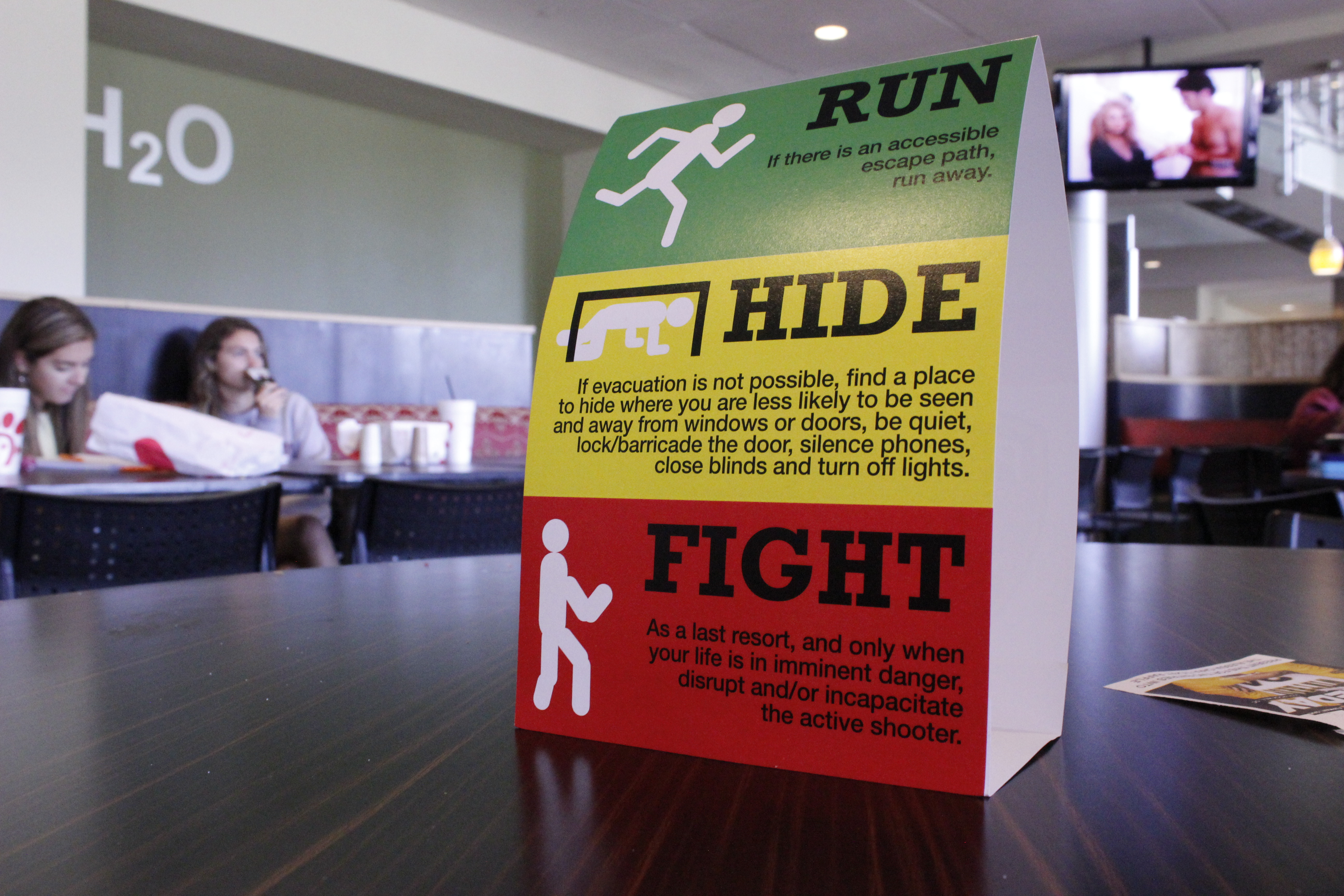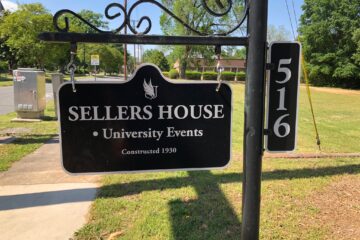Campus safety is an issue that never really goes away. Even with the numerous security measures that Winthrop boasts—the WU Alert System, open forums, police escorts and blue-light call boxes that are a direct line to campus police—there are still incidents that leave the campus feeling unsafe.
In the most recent Annual Security Report released by campus police, it was revealed that there were six reported rapes in 2018. Five were reported to happen in residence halls, while the other was reported to happen in a non-campus area. A non-campus area is a building that is not within on Winthrop’s physical campus, but is still affiliated with the university, such as greek housing or the Coliseum.
For undergraduate students, Winthrop has a two-year on campus residency requirement.
“All newly admitted full-time first year students, and transfer students entering Winthrop University with less than 24 credit hours, are required to live on campus for their first two years of attendance … unless they live within a 50-mile radius with a parent/guardian, are 21 years of age, are married or a single parent,” according to an exemption request form from the Department of Residence Life.
Interim Director of Residence Life Howard Seidler said that sexual assaults that happen in the residence halls are not always reported to campus police or a residence life staff member.
“These incidents are very sensitive and very confidential. So Residence Life is not aware of incidents unless they are reported to a Residence Life staff member, so sometimes they are not reported to us, and if they’re not reported to us, then we don’t know about them,” Seidler said.
“[The] university provides options available to them, when students [that] are victims of sexual abuse do not report incidents to police these will not appear on [the] police statistics, of course. So that’s how that works and that’s how sometimes we maybe know about it, sometimes we don’t.”
When the ASR is compiled, it is delayed for nearly a year. This means that crimes that were reported in the previous year are released to students in the fall of the following year. For example, the ASR that was released in Sept. 2019 was the 2018 ASR. The ASR is released by campus police as part of the Clery Act in an effort to maintain transparency of crime on–campus to students. However, Assistant Dean of Students and Director of Student Conduct Anthony Davis said these reports have low readership.
“I don’t know if there’s a better way we could get students to pay more attention to it. In terms of the timing, we’re just following exactly what the government is saying, what the federal government is saying we should, in terms of whenever they get the numbers out. It’s always like delayed a year almost, by the way they report it,” Davis said.
Winthrop students take safety seriously, as evidenced in the aftermath of another sexual assault that happened in Feb. 2019. A student was sexually assaulted near the Campus Walk apartments on Rose Street. The suspect stole her ID, keys and car as well.
This incident turned the Winthrop community upside down. Students were angry, upset and left feeling unsafe in their homes. They called out administration, wrote to Winthrop President Dan Mahony and WUPD came under fire.
Hailee Beltzhoover, a senior theatre performance major, told The Johnsonian last semester that she felt the “priorities of the campus police are skewed.”
“They give out parking tickets and want to bust parties, but when it comes to students’ safety with robberies, rapes and other huge issues, their hands are off, and it’s the Rock Hill jurisdiction,” Beltzhoover said.
After this incident, there were forums and times for students to voice their concerns and get direct answers from WUPD and Winthrop administration. However, Davis said these forums were not well–attended.
“It’s really interesting when these situations happen because I know that it impacts students, but what we don’t see is many students showing up in any type of solidarity to use their voice to communicate,” Davis said.
Behind the scenes, there is a group that brings together campus police, academics, health and counseling, residence life, athletics and the Dean of Students office to talk about potential threats to campus safety.
The Behavioral Intervention Team meets every Wednesday, Assistant Dean of Students Miranda Knight said.
“We meet to talk about incidents or things that may need our attention, because we’re trying to stop stuff from happening before it happens,” Knight said.
“We are looking at things that have happened, we’re looking at things that could potentially happen and also we’re looking at other things like other issues on campus, like safety concerns that we need to address,” Knight said.
WUPD Lt. Charles Yearta said these meetings are helpful in determining “trends” in behaviors and create a plan of action.
“If there were three cases in Richardson Hall of sexual assault and none of them were reported to the police … but there were three cases of sexual assault [reported] to residence life … or the dean of students or health and counseling, then we can look at trends and make sure this isn’t a trend that is uprising,” Yearta said. “If we did see [a trend], then we would obviously have to delve into either getting campus police involved or sending out emergency or timely notifications depending on what the situation is.”
Yearta said that he did not believe the increase from zero to six reported rapes from 2017 to 2018 was indicative of a trend.
“These were, from what we’ve gathered, these were very similar to the case that was actually reported to us, instances not necessarily occurring at the same area during the same time, these were just six instances together, spread out over the whole university, over the whole year,” Yearta said.
Davis said getting the word out about these safety measures—the Behavioral Intervention Team, the Annual Security Report—could aid in creating a campus culture of trust.
“Right now the team kind of works in the shadows,” Davis said.
“We really just have to build a culture of reporting things. Sometimes students will see something odd or disturbing, and they’ll just go about their way. Well chances are, if a behavior occurs that is disturbing to the point of notice, it might not be the only place that that behavior is occurring,” Davis said. “We need to do a better job of educating students across the board. One, on what some of these behaviors look like, where they can report things, what happens when they report.”
Davis said that if a student reports an incident, it will be investigated.
“We need to improve on our efforts to educate students on when you report, we will investigate. I think sometimes that word can be scary to students. An investigation can be intrusive, but it’s something that we have to do,” Davis said.
Photo: Tate Walden/ The Johnsonian




